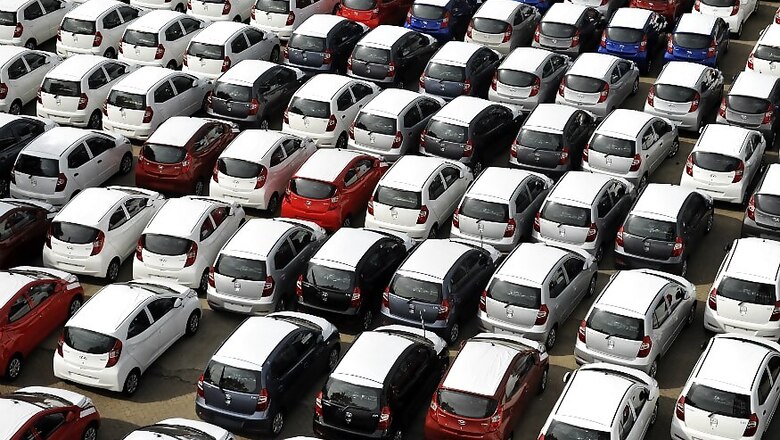
views
New Delhi: Union Finance Minister Nirmala Sitharaman in her press conference on the state of economy on Friday said that the government will consider a ‘scrappage policy’ among other steps to boost demand in the automotive sector.
A scrappage policy is a government-funded programme to promote the replacement of old vehicles with modern ones. A vehicle scrappage programme is usually intended to stimulate the automotive industry as well as taking obsolete and more polluting vehicles off the road.
Several countries have vehicle scrappage programmes in place, many of which came up during the 2008 global economic recession to stimulate and uplift market demand in the manufacturing sector.
Programmes such as the 'Car Allowance Rebate System' in the United States, 'Vehicle Incentive Programme' in Canada, and others in several European countries are examples of these policies across the world.
The Indian government has long mulled a scrapping policy with an aim to curb vehicular pollution due to old commercial vehicles that contribute majorly towards deteriorating air quality.
Last month, the Ministry of Road Transport and Highways proposed a draft policy that buyers would not have to pay a registration fee for their new vehicles if they provide valid scrapping issued by an “authorised scrapping agency”.
The policy is also expected to generate new business and job opportunities as new scrapping centres are set up across the country.
Indian auto giant Mahindra recently announced a partnership with Metal Scrap Trade Corporation Ltd (MSTC) and has set up scrappage centres called Mahindra Accelo. This would be the first government authorised scrappage centre in the country.
However, the mandated scrapping of 'old vehicles' may upset those in the business of transportation as it would require thousands of old trucks and heavy vehicles to be scrapped and large investment on the part of transporters to replace them.
Other than this, Sitharaman also announced that BS-IV vehicles will remain operational till March next year and revision of one-time registration fees has been deferred till June 2020.


















Comments
0 comment